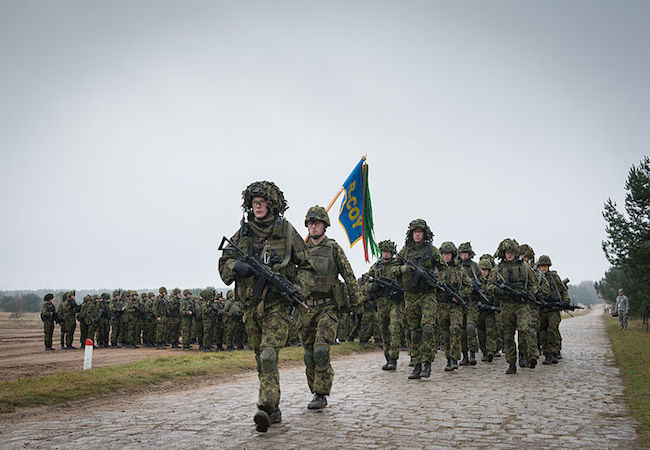
By Luis Durani
The fallout from Brexit has not only affected the economic and social trajectories of Europe but also will shift the military dynamics of the continent. During the Cold War, NATO had been the defender of Western Europe from any potential Soviet attack. As the Cold War ended, any external threat to the continent mostly dissipated.
As the world shifted away from the US-Soviet rivalry, Europe attempted to solidify itself as a continent by further empowering the concept of a union amongst Europeans. This premise came to fruition at the turn of the millennium as a single market and territory. As the members were progressing towards aligning their different economic, social and justice policies, the military aspect never lined up in harmony. Britain, one of Europe’s leading military power, did not jump on board. Similar to the currency issue, Britain did not want to concede total authority of their military to politicians in Brussels. However, with the British out of the European Union thanks to Brexit, the door opens once again for continental Europe to consolidate into a single European military entity.
Aside from not acceding to the Euro, the British remained the obstinate impediment to a united European army. The pooling of resources, both financial and military, would grant Europe the necessary ability to influence events on a global stage rather as separate and smaller entities with the little power to make any noticeable difference. The British’s constant refusal was principally based on NATO’s existence, but perhaps more importantly, sovereignty over British military affairs. The UK argued that the existence of NATO, a military alliance between Europe and America, rendered the need for a European military futile. If anything, the British insisted, the creation of a Euro-army would essentially eliminate the NATO alliance and render the continent weaker without the American military.
However, with the British out of the picture, the Europeans are now able to pursue unifying their military command to help reduce the economic burden of defense on each country while providing more resources to project their power. Simultaneously, the presidential candidate Donald Trump has begun to question the necessity and benefits of NATO to the US. Trump pointed to the fact that only 5 out of the 28 member states actually contribute to the minimal required defense spending. Trump is conveying the notion that NATO is nothing more than America subsidizing European defense at the cost of American taxpayers. Such continuous rhetoric by the Republican nominee has created an environment of apprehension for many in Europe, who believe that the withdrawal of the UK from the EU coupled with the rise of anti-NATO sentiments in America requires Europe to unite militarily now or never.
Such fears will create the necessary climate for the disintegration of NATO. To an extent, the utility of NATO as a defense alliance amongst Western powers against a potential Soviet aggression is of no longer use. The rise of terrorism has rendered the alliance almost impotent against such a threat. Coupled with the inability of the alliance to end the long war in Afghanistan as well as its actions in Libya, makes many question the alliance. NATO was not designed to help nation build as is being done in Afghanistan. The design of NATO was for an archaic threat that no longer exists and has led to the creation of a bureaucratic and bulky organization in a world that now requires an agile, flat, and swift establishment.
Yet, the rise of Russia and its recent forays into Crimea and Ukraine has helped somewhat give credence to the military regime. Whether this new threat from the east will justify the continuance of the organization is a different story. The future is bleak but what may occur is the dissolution of NATO and a new organization that emerges for the EU. As a result, the US and UK might form a military alliance as well as a US and EU. This will help the US shift the financial burden to Europe while securing the same alliance as before. However, the rise of Russia has caused NATO to shift its forces to the east to help secure their eastern European allies. The series of events in Eastern Europe has led to many pundits arguing that NATO has a raison de vivre, but unfortunately time is not with them.
Luis Durani is currently employed in the oil and gas industry. He previously worked in the nuclear energy industry. He has a M.A. in international affairs with a focus on Chinese Foreign Policy and the South China Sea, MBA, M.S. in nuclear engineering, B.S. in mechanical engineer and B.A. in political science. He is also author of “Afghanistan: It’s No Nebraska – How to do Deal with a Tribal State.” Follow him for other articles on Instagram: @Luis_Durani




